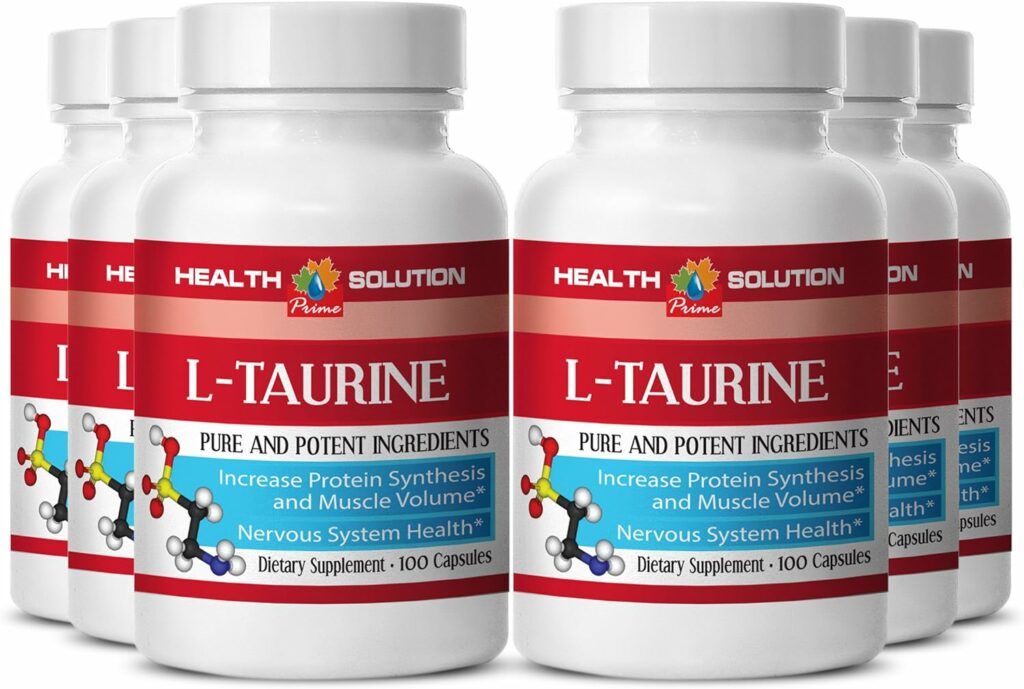introduction
In the world of nootropics, substances that enhance cognitive function and brain performance, taurine, an amino acid found abundantly in various foods, is gaining recognition for its potential cognitive and neurological benefits. In this comprehensive guide, we will explore the multifaceted aspects of taurine in the context of nootropics, delving into its functions, sources, mechanisms, and potential advantages for brain health and cognitive enhancement.
Demystifying Taurine
Taurine is a sulfur-containing amino acid that plays a vital role in various physiological processes, including brain function. While it is not considered an essential amino acid, it holds promise for cognitive enhancement and overall well-being.
The Role of Taurine in Cognitive Enhancement
Taurine’s potential cognitive benefits stem from its impact on neurotransmitters, neuroprotection, and overall brain function. These include:
Neurotransmitter Modulation
Taurine can modulate the activity of neurotransmitters like gamma-aminobutyric acid (GABA) and glutamate, which are crucial for regulating mood, anxiety, and cognitive function. By influencing these neurotransmitters, taurine can contribute to improved cognitive performance and stress reduction.
Antioxidant and Neuroprotection
Taurine possesses antioxidant properties, which can protect brain cells from oxidative stress and inflammation. This neuroprotective effect is essential for preserving cognitive function and reducing the risk of neurodegenerative diseases.
Improved Memory and Learning
Research suggests that taurine may enhance memory and learning abilities, making it a valuable component in cognitive enhancement strategies. Its role in synaptic plasticity and long-term potentiation is of particular interest.
The Mechanisms Behind Taurine’s Cognitive Benefits
Taurine influences brain function through various mechanisms:
Neurotransmitter Modulation
As an agonist of GABA receptors, taurine can enhance GABAergic transmission, promoting relaxation and stress reduction. This can lead to improved cognitive function, particularly in tasks requiring focus and memory.
Protection Against Oxidative Stress
Taurine’s antioxidant properties help neutralize harmful free radicals and protect brain cells from oxidative damage, preserving cognitive function and overall brain health.
Cell Membrane Stabilization
Taurine plays a role in stabilizing cell membranes in the brain, which is essential for the proper functioning of neurons and synapses. This stability can enhance synaptic transmission and cognitive performance.
Dietary Sources of Taurine
Taurine is naturally present in various foods, with higher concentrations found in animal-based sources. Understanding these sources is crucial for those considering taurine as part of their nootropic regimen.
Meat and Seafood
Animal-based sources like beef, chicken, fish, and shellfish are rich in taurine. Consuming these foods can provide a significant amount of taurine in the diet.
Supplements
For those who prefer non-dietary sources, taurine supplements are available. It’s important to choose high-quality supplements from reputable manufacturers.
Safety Considerations
While taurine offers potential cognitive benefits, there are important safety considerations, particularly for individuals with specific medical conditions and sensitivities.
Interactions with Medications
Taurine can interact with medications, particularly those that affect blood pressure and neurological function. Individuals on such medications should consult healthcare professionals before incorporating taurine into their nootropic regimen.
Dosage and Supplementation
Determining the appropriate dosage of taurine for cognitive enhancement requires careful consideration. It is advisable to consult with a healthcare provider or nutritionist to ensure an appropriate and safe intake.
Conclusion
Taurine is a promising addition to the world of nootropics, offering potential cognitive benefits through its influence on neurotransmitters, neuroprotection, and overall brain function. It is particularly attractive for those seeking improved memory, learning, and stress reduction without the side effects associated with certain medications.
As the research into the cognitive benefits of taurine continues, it is advisable to stay informed about its potential advantages, dietary sources, and safety precautions. This comprehensive guide serves as a valuable resource for those looking to explore the role of taurine in the realm of nootropics and its potential impact on cognitive function and brain health.
- Unveiling the Cognitive Potential: A Comprehensive Guide to the Benefits of Taurine in Nootropics - November 1, 2023
- CBD For Pets By Relievet-The Definitive Review of Top CBD Products for Pets - September 19, 2023
- Doctor Jamaica Marijuana Strain - September 9, 2023

